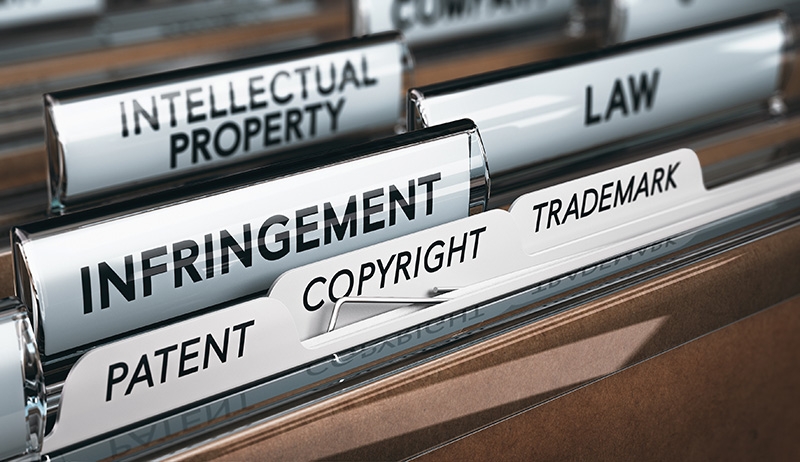Adding intellectual property rights as key startup values
 |
| By Nguyen Thi Hong Anh - Partner, head of IP&T Practice Group, Indochine Counsel |
However, startups frequently lack interest in identifying IP subjects and creating strategies for protection and enforcement of their IPRs. This is contradictory to reality as IPRs protection is considered one of elements that attracts investment resources in startup projects and helps prevent unfair competition.
Some of the most important IP subjects that startups should take into consideration include subjects of copyrights protection: symbols/logos, computer programmes, product package designs, layout of stores, and software icons; subjects of trademark protection such as registered company names, service brands, and domain names; and subjects of industrial design protection in terms of product designs and packaging designs.
Other key factors include solutions in the form of processes or products for solving technical problems; areas of business secret protection for business information, databases, know-how, and technical info; tradename protection for registered company names; and subjects for protection as designs of semiconductor integrated circuits, in terms of layouts of integrated circuits of electronic devices and electronic toys, for example.
Under the current Law on Intellectual Property, among the aforementioned subjects, IPRs to trademarks, industrial designs, patents, and layout-designs of semiconductor integrated circuits must be based on titles granted by the National Office of Intellectual Property of Vietnam through the prescribed registration procedures. The remaining IP subjects can be protected without registration if they satisfy the respective prescribed protection requirements.
Gaining an advantage
Even though it is optional, a copyright registration procedure is provided under the law on IP, and startups are advised to, subject to financial ability, register copyrights for eligible works, especially for works which are important for business operation and/or considered to have market value.
This allows them to utilise a number of benefits associated with copyright registration, such as obtaining public records of copyright ownership and registration certificates, which are useful for marketing activities; and the copyright registration establishes prima facie evidence if the startups initiate proceedings to enforce their copyright against infringements.
Regarding subjects of trademark protection, domain names are registered with the licensed domain name registrars for obtaining the legitimate use rights for such domain names, but domain names are not the subject to IPR protection under the Law on Intellectual Property.
Domain names should, however, be registered as trademarks if they are eligible for prescribed trademark registration, which registration can help protect the startup’s business identity, reputation, and certain profits. Similarly, the protection of eligible business names is based on legal use of such names, but startups are also advised to register their business names as trademarks for acquiring more effective protection.
The registration of IPRs by startups should be conducted as soon as subjects are created in order to avoid potential disputes or obstacles for registration later after certain market value of such IPRs has been acquired. In addition, a startup needs to consider whether its IPRs should be registered in the individual names of contributors or in the name of the startup to ensure the fair protection of rights and interests of contributors and the business entity.
Besides establishment of their own IPRs by carrying out required procedures, startups need to avoid infringing other persons’ IPRs and/or contractual obligations with other parties. In some cases, a person founding his/her own startup during the term of an existing labour contract with an employer has an obligation under such labour contract or a valid IPRs assignment contract, to assign to their employer any and all IPRs created by them during the labour term.
In such a case, the startup founder should review the contracts and related legal documents to determine which creations have the nature of works-made-for-hire, and accordingly, require the IPRs therein be assigned to the company for compliance with his/her contractual or legal obligations.
These works-made-for-hire should not be used for the startup to avoid the risks of legal actions for infringement of IPRs or breach of contractual obligations.
 |
| Adding intellectual property rights as key startup values |
Crucial clarity
In establishing a startup, it is important to note that the registered business names, trademarks, and domain names of a company should be consistent or linked with each other to help create a core business identity which will be maintained during the operation of the startup. In this connection, the startup should also minimise the risk of infringement of other person’s IPRs in respect of the startup’s use such business names, trademark, and domain names.
Conducting initial searches for the startup’s intended trademark, business name, and domain name using available online databases is a helpful step for startups to avoid marks and names that may be confusingly similar to protected ones, and thus minimise the said risk.
Startups should also avoid using only Vietnamese words with special characters in their trademarks if they want to target international markets because of difficulty in pronunciation by foreigners, and therefore, there may have some limits in marketing or advertising such trademarks.
For their employees, the startup should include clauses in its labour contracts or have IPRs assignment agreements in order to secure that any and all IPRs in creations made by such employees during the term of their labour contract will be deemed works-made-for-hire, and must be assigned to the startup. In addition, the following clauses should be included in the company’s labour contracts to mitigate risks of IPRs infringement by the company:
- Employee’s commitments to not infringe IPRs of any other persons in his/her creating works made for or assigned to the startup; and
- Employee’s commitments to indemnify the company for costs suffered by the company in case of a complaint of IPRs infringement submitted by any third party against the company’s use of the employee’s creations.
Similar clauses on IPRs should be included in outsourcing agreements between startups and service providers if the creations of the startup are outsourced products.
Under the law on IP, IPRs to business secrets shall be established on the basis of lawful acquirement and maintaining confidentiality, and accordingly the startup must apply necessary measures for prevention of unauthorised disclosure of and access to such secrets, including binding employees with commitments or obligations to keep confidential the startup’s business secrets in their labour contracts, internal rules, or separate agreements.
Finally, non-disclosure agreements with partners or service providers are vital. In case the disclosure of confidential information is necessary for the purpose of cooperation between parties or to obtain advice from experts, signing such an agreement should always be the first consideration, so that the risks of unauthorised disclosure or use of the confidential information by the startups’ partners or advisers is mitigated, and their abusive disclosure of the startups’ inventions and industrial designs, if any, does not lead to the loss of novelty – one of the patentable conditions – of such inventions and industrial designs.
What the stars mean:
★ Poor ★ ★ Promising ★★★ Good ★★★★ Very good ★★★★★ Exceptional
Related Contents
Latest News
More News
- Citi economists project robust Vietnam economic growth in 2026 (February 14, 2026 | 18:00)
- Sustaining high growth must be balanced in stable manner (February 14, 2026 | 09:00)
- From 5G to 6G: how AI is shaping Vietnam’s path to digital leadership (February 13, 2026 | 10:59)
- Cooperation must align with Vietnam’s long-term ambitions (February 13, 2026 | 09:00)
- Need-to-know aspects ahead of AI law (February 13, 2026 | 08:00)
- Legalities to early operations for Vietnam’s IFC (February 11, 2026 | 12:17)
- Foreign-language trademarks gain traction in Vietnam (February 06, 2026 | 09:26)
- Offshore structuring and the Singapore holding route (February 02, 2026 | 10:39)
- Vietnam enters new development era: Russian scholar (January 25, 2026 | 10:08)
- 14th National Party Congress marks new era, expands Vietnam’s global role: Australian scholar (January 25, 2026 | 09:54)

 Tag:
Tag:



















 Mobile Version
Mobile Version